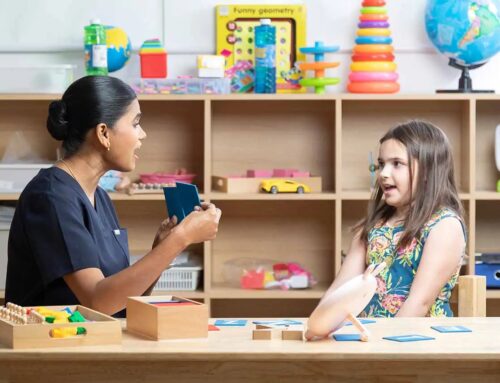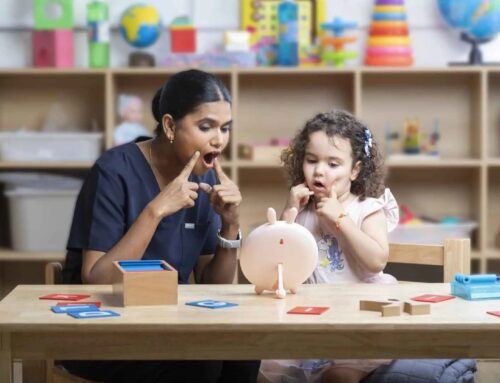For children with sensory processing challenges, the environment can either support or sabotage their ability to focus, learn, and grow. Whether it’s a classroom full of noise, bright lights, or even a crowded table, sensory input can quickly become overwhelming. At OrbRom Center in Phnom Penh, we recognize how crucial it is to create calming, predictable environments that match the sensory needs of each child.
In this blog, we explore the essentials of building supportive learning environments—at home and at school—for children with autism, ADHD, or other sensory processing differences.
Why the Environment Matters for Sensory Processing
Many children with developmental delays or neurological conditions like autism spectrum disorder (ASD) experience hypersensitivity or hyposensitivity to environmental stimuli. Loud sounds, strong smells, visual clutter, or even scratchy clothing can create discomfort or distraction.
Calm, sensory-friendly spaces help children:
-
Regulate their emotions and energy levels
-
Improve concentration and task persistence
-
Develop self-soothing strategies
-
Build a sense of safety and trust
In Phnom Penh, where classroom sizes can be large and learning environments may vary, designing sensory-sensitive spaces is especially critical for children receiving special education support.
Key Elements of a Sensory-Friendly Learning Space
You don’t need to completely redesign your home or classroom to support your child’s needs. Small, intentional adjustments can make a big impact.
1. Visual Simplicity
Children who are visually sensitive may become overwhelmed by too many posters, bright lights, or busy walls. Keep the learning area clean and organized with minimal visual distractions.
2. Sound Management
For children with auditory sensitivity, even minor background noise can be disruptive. Soft surfaces (like rugs and curtains) absorb sound, while white noise can help mask distracting sounds.
Tools like Noise Cancelling Headphones from OrbRom’s sensory shop allow children to focus without anxiety in both school and home settings.
3. Comfortable Seating and Movement Options
Some children learn best when allowed movement or alternative seating. Consider:
These accommodations support sensory regulation and improve task engagement.
4. Predictable Routines
The physical environment should reflect a structured daily rhythm. Use visual schedules, timers, and labeled activity areas to support transitions and build independence. Predictability reduces stress and prepares the child for success.
How OrbRom Center Supports Sensory Needs
At OrbRom Center in Phnom Penh, our educators and therapists work closely with families to create individualized plans that address each child’s sensory profile. Whether it’s modifying a classroom setting, building a home-based learning nook, or introducing sensory tools, our goal is to reduce overwhelm and promote focus.
Our Occupational Therapy Services are tailored to help children regulate sensory input and participate more fully in daily tasks—from academic learning to self-care routines. Therapists assess each child’s sensory integration needs and recommend strategies and equipment to enhance functioning.
We also guide parents in building calm routines that support their child’s nervous system—especially in the busy urban environment of Phnom Penh, where overstimulation is common.
Sensory Tools That Make a Difference
Parents often ask which tools can help their child manage sensory needs during learning. OrbRom’s curated sensory shop features evidence-based products that are already helping many families across Cambodia.
Consider adding these to your learning space:
These tools promote a self-regulated state where learning can flourish.
Empowering Calm, One Environment at a Time
Creating a calm space doesn’t mean removing all stimulation. It means offering just the right amount and type of sensory input to help your child feel secure, focused, and empowered to engage in learning.
With the right tools, guidance, and strategies, every child—regardless of their challenges—can thrive in a thoughtfully designed environment.
If your child needs support managing sensory overload, OrbRom Center’s Occupational Therapy Services in Phnom Penh can help. Our therapists understand the connection between environment, sensory needs, and learning success. Let us guide you in creating a space that supports not just school success—but lifelong well-being.






